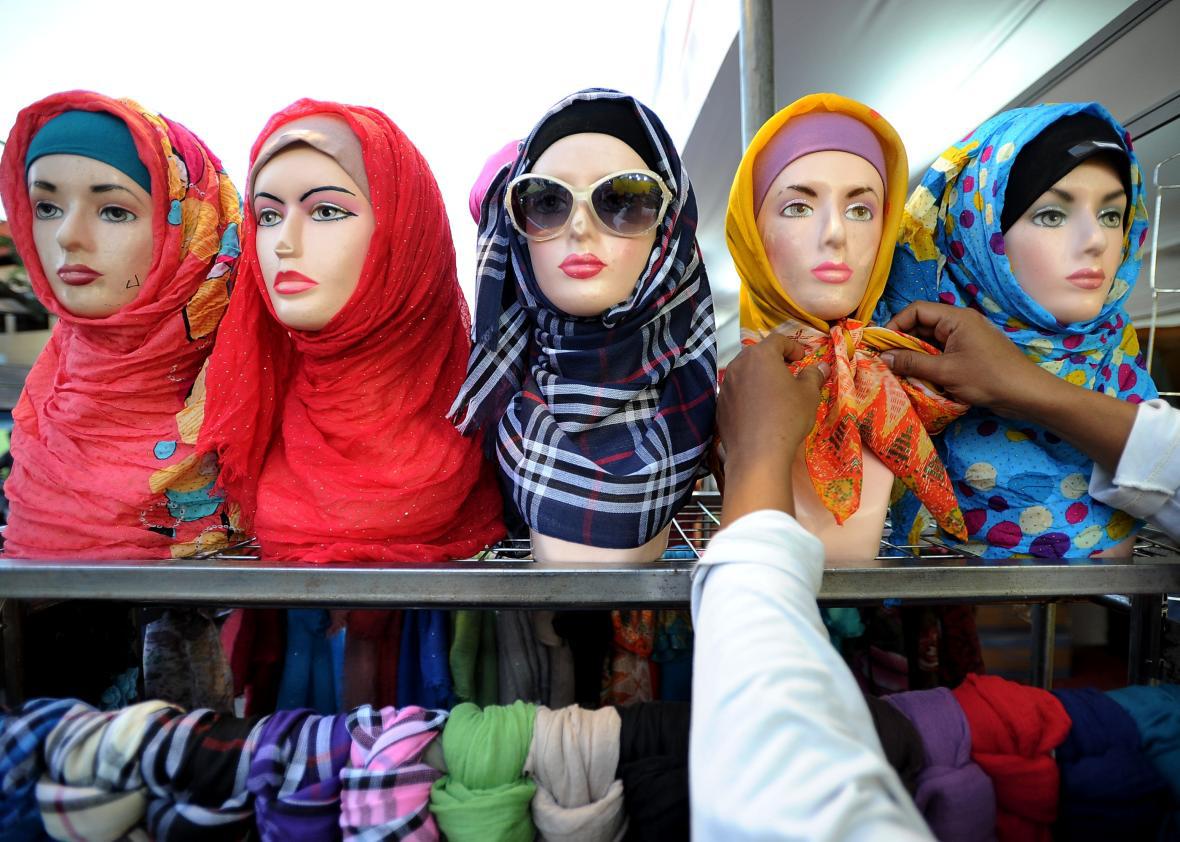Wheaton College, the Christian liberal-arts college in Illinois, has placed a tenured political science professor on administrative leave after she wore a hijab to protest Islamophobia, stating that Christians and Muslims “worship the same God.”
In a statement, Wheaton College officials noted that they placed associate professor Larycia Hawkins on administrative leave because of the “theological implications” behind her show of solidarity, which may not “faithfully represent the College’s evangelical Statement of Faith.” “I stand in human solidarity with my Muslim neighbor because we are formed of the same primordial clay, descendants of the same cradle of humankind,” Hawkins wrote on Facebook on Dec. 10. “I stand in religious solidarity with Muslims because they, like me, a Christian, are people of the book.” She has committed to wearing the hijab throughout Advent at church, at her job, in her home life, and in the airport and airplane on her way home to Oklahoma—a state that passed one of the country’s first anti-Sharia laws.
The idea is that Hawkins might draw negative attention, hurtful words, or violent blowback by wearing a hijab, which might help her understand the plight of Muslim-American hijabi women in today’s frighteningly Islamophobic world. But it also entails adopting a meaningful symbol and act from a religion she does not practice. Hawkins wrote on Facebook that she asked a friend at the Council on American Islamic Relations “whether a non-Muslim wearing the hijab was haram (forbidden), patronizing, or otherwise offensive” to Muslims. According to Hawkins, CAIR “welcomed the gesture.”
Amarra Ghani, a 25-year-old Muslim journalist, says that as a hijabi woman who understands the power of human curiosity, she can accept Hawkins’ act as part of a lesson to help her students and colleagues learn about Islam and Islamophobia. “But wearing it around as if to say ‘I understand your struggle, I understand what you’re going through and I am standing up with you’ isn’t something that can be accepted,” Ghani told me. “Hawkins may be attacked, looked at differently, stopped at the airport—but at the end of it all, she will be able to leave her experiment.”
In another Chicago suburb not far from Wheaton College, Muslim students at Vernon Hills High School hosted a “Walk a Mile in Her Hijab” event last Wednesday, helping 17 non-Muslim girls cover their heads with scarves for a day at school. This kind of event has been called “hijab tourism” and criticized for removing the hijab from its religious and cultural context. “It privileges the experience of non-Muslim women over and above the stories and narratives of actual Muslim women who wear hijab every day,” wrote Fatihah at Ms. Muslamic last year. “Solidarity through cultural appropriation is extremely problematic, because the consequences for non-Muslims wearing hijab are never as severe as they are for Muslims.”
One 28-year-old Muslim woman who wears a hijab told me that before the last few months of heightened anti-Muslim sentiment in the U.S., she had qualms about so-called hijab tourism. But “I think times are a little different now, because people who are visibly Muslim—which, because of hijab, happens to be mostly women—are being targeted at a much higher, scarier rate,” she says. “I see the hijab solidarity gestures not so much as a form of appropriation or a weird exercise in pity or empathy, but actually more of, I hope, a normalizing, supportive force—more like a symbolic bystander intervention.”
“While Islam and Christianity are both monotheistic, we believe there are fundamental differences between the two faiths, including what they teach about God’s revelation to humanity, the nature of God, the path to salvation and the life of prayer,” Wheaton College said in a statement. Saba Ahmed, the founder of the Republican Muslim Coalition who wore an American-flag hijab on Fox News, has written on the similarities between the God of Christianity and the Allah of Islam. She thinks better communication between the two religions is one of the best weapons against extremist violence. “I don’t think [Hawkins] should have been suspended; she was just trying to show solidarity,” she told me.
Ghani agrees that Wheaton shut down what could have been a valuable discussion by removing Hawkins from the campus community, but she thinks there could have been a better way to start that conversation. “If non-Muslims want to stand in solidarity with Muslims, then using your voice [and] stepping up to bigotry and hateful speech within your community, within your circle of people, will bring more change than wearing a scarf on your head for a number of days,” she says.
To Farha Tahir, a 28-year-old Washington, D.C., policy analyst and hijabi, Hawkins’ brand of activism is an act of kindness, a welcome change from the hostility and intolerance she’s felt from U.S. politicians. “To me, the professor’s actions reflect a woman taking matters into her own hands and saying, ‘No politician speaks for me, I speak for myself,’’ Tahir says. “I think that’s the most American thing one can do.”
